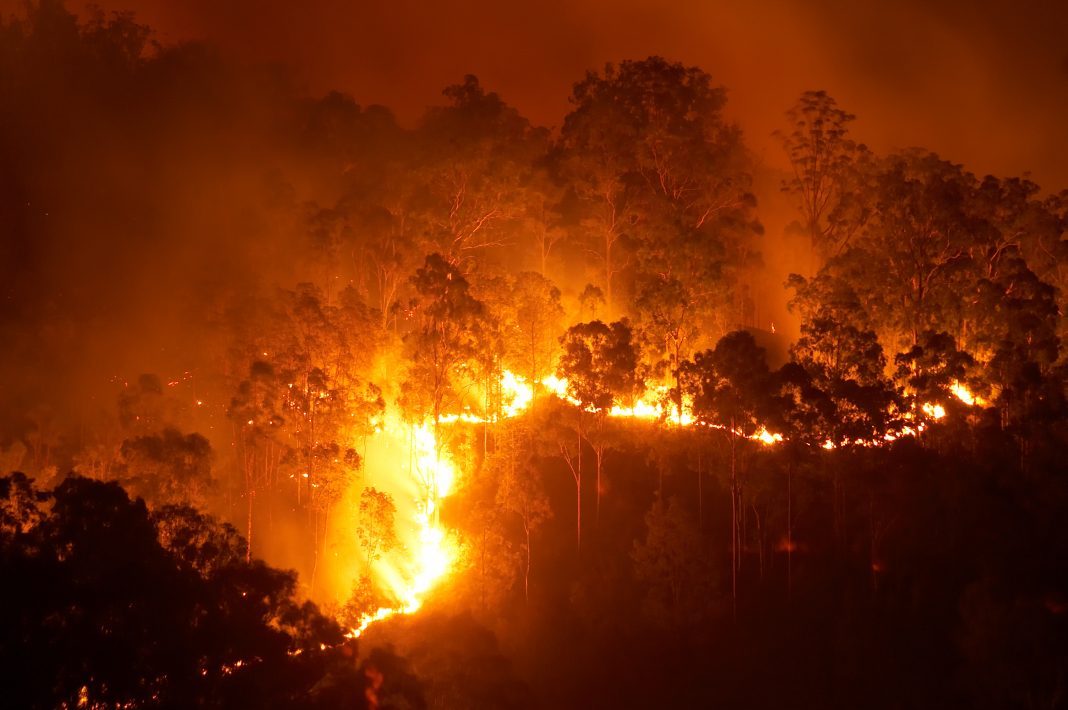Mónica Rodrigues from the University of Coimbra and Fantina Tedim from the University of Porto, both in Portugal, present their perspectives on climate, human health, and wildfires to create a future that is both sustainable and resilient
Climate change is undoubtedly one of our highest social challenges, as it is arguably a risk multiplier for Europeans (Naumann et al., 2020; Rodrigues et al., 2021; Rodrigues, 2023; Tedim et al., 2023; Tedim et al., 2018), as it interacts with other contributing factors to increase human vulnerability.
The report recently published by the Intergovernmental Panel on Climate Change (IPCC, 2022) stresses this interdependence between climate, ecosystems, and human societies.
It also highlights the urgency in discussing the mechanisms underlying vulnerability, including human health and well-being, social justice, and demographics, to strengthen nationwide resilience and adaptation to climate change.
Portugal was the first country to recognise a stable climate as a World Natural Heritage through the Climate Bill (Lei de Bases do Clima – Law No. 98/2021), approved by the Portuguese Parliament on 31st December 2021.
This legal instrument establishes new provisions in public climate policies, consolidating goals, ruling principles, and obligations for climate action in the different levels of governance. The Climate Bill aligns with the goals of the Paris Agreement and the European Green Deal.
Workshop presentation
On 22nd September, a workshop took place at the Faculty of Arts and Humanities at the University of Porto, discussing the interactions and synergies among climate change, human health, and wildfires to meet the United Nations Sustainable Development Goals (SDGs) guidelines.
This multi-sectorial and multidisciplinary event brought together academics and Portuguese governing bodies (the Portuguese Parliament, the Portuguese Directorate-General of Health (DGS), Ministry of Environment and Climate Action and the Portuguese Environment Agency).
Objectives: Understanding challenges and sharing best practice
The workshop offers participants a sustained and informed discussion on policies, strategies, climate change adaptation, and transformation measures in different sectors of society. It also allows us to acknowledge the challenges and share good practices in building a more developed, sustainable, resilient Portuguese Society.
Target audience
The target audience are members of central, regional, and local government organisations, including city councils, civil protection, researchers, journalists, students, private entities or citizen associations or institutions, and the general public.
Special Issue of the Atmosphere journal
We welcome and encourage the submission of high-quality, original papers to a Special Issue of the Atmosphere journal. Atmosphere is an international peer-reviewed open-access quarterly journal published by MDPI.
Workshop programme
- 13:30h
- Welcome Desk
- 14:00h
- Opening Session
- 14:15h – 15:00h
- “Adaptation of the Health Sector to Climate Change in Southern Europe” – Anabela Santiago, Portuguese Directorate-General of Health (DGS)
- 15:00h – 15:45h
- “Wildfires and Climate Change Adaptation- OECD Contributions” – Bertília Valadas, Ministry of the Environment and Climate Action, Portugal
- 15:45h – 16:30h
- “European and National Contexts in Adaptation Policies” – Pedro Baptista, Portuguese Environment Agency
- 16:30h
- Coffee Break
- 16:50h – 17:10h
- “Climate Change and Future Risks to Portuguese Public Health: Main Trends and Challenges” – Mónica Rodrigues, University of Coimbra, Portugal
- 17:10h – 17:30h
- “Climate Change and Wildfire Governance: Challenges for Building a Resilient Society in Portugal” – Fantina Tedim, University of Porto, Portugal
- 17:30h
- Discussion and Conclusions
Tiago Brandão Rodrigues, President of the Parliamentary Committee of Environment and Energy
Anabela Santiago, Portuguese Directorate General of Health
Bertília Valadas, Ministry of the Environment and Climate Action, Portugal
Pedro Baptista, Portuguese Environment Agency
Mónica Rodrigues, University of Coimbra, Portugal
Fantina Tedim, University of Porto, Portugal
- 18:00h
- Closing Session Tiago Brandão Rodrigues, President of the Parliamentary Committee of Environment and Energy
References
- IPCC, 2022: Climate Change 2022: Impacts, Adaptation, and Vulnerability. Contribution of Working Group II to the Sixth Assessment Report of the Intergovernmental Panel on Climate Change [H.-O. Pörtner, D.C. Roberts, M. Tignor, E.S. Poloczanska, K. Mintenbeck, A. Alegría, M. Craig, S. Langsdorf, S. Löschke, V. Möller, A. Okem, B. Rama (eds.)]. Cambridge University Press. Cambridge University Press, Cambridge, UK and New York, NY, USA, 3056 pp., doi:10.1017/9781009325844.
- Naumann, G., Russo, S., Formetta, G., Ibarreta, D., Forzieri, G., Girardello, M., and Feyen L., Global warming and human impacts of heat and cold extremes in the EU, EUR 29959 EN, Publications Office of the European Union, Luxembourg, 2020, ISBN 978-92- 76-12954-7, doi:10.2760/47878, JRC118540.
- Rodrigues, M., Natário, I. & do Rosário de Oliveira Martins, M. Estimate the effects of environmental determining factors on childhood asthma hospital admissions in Lisbon, Portugal: a time series modelling study. Theor Appl Climatol. 143, 809–821 (2021). [https://doi.org/10.1007/s00704-020-03415-w]
- Rodrigues, M. Projections of Cause-Specific Mortality and Demographic Changes under Climate Change in the Lisbon Metropolitan Area: A Modelling Framework. Atmosphere. 14(5),775 (2023). [https://doi.org/10.3390/atmos14050775]
- Tedim, F., Samora-Arvela, A., Aranha J., Coimbra C., Correia F., Pinto D. Bridging knowledge gaps on the role of spatial planning in wildfire risk reduction: insights from Portugal. International Journal of Wildland Fire. 32, 403-416 (2023). [https://doi.org/10.1071/WF22131]
- Tedim, F., Leone, V., Amraoui, M., Bouillon, C., Coughlan, M.R., Delogu, G.M., Fernandes, P.M., Ferreira, C., McCaffrey, S., McGee, T.K., et al. Defining Extreme Wildfire Events: Difficulties, Challenges, and Impacts. Fire. 1, 9 (2018). [https://doi.org/10.3390/fire1010009]
Primary contributors
Dr. Mónica Rodrigues University of Coimbra (UC), Portugal
masanrodrigues@gmail.com
Dr. Fantina Tedim University of Porto (UP), Portugal
ftedim@letras.up.pt

This work is licensed under Creative Commons Attribution-NonCommercial-NoDerivatives 4.0 International.


